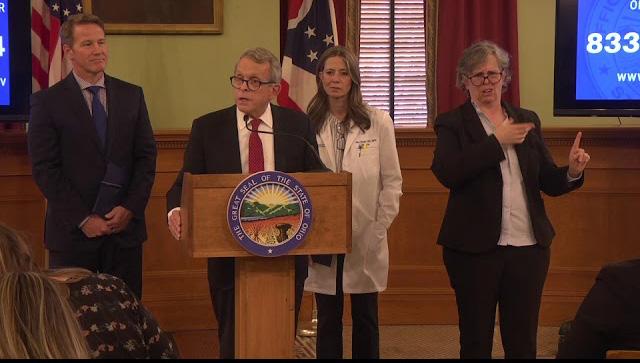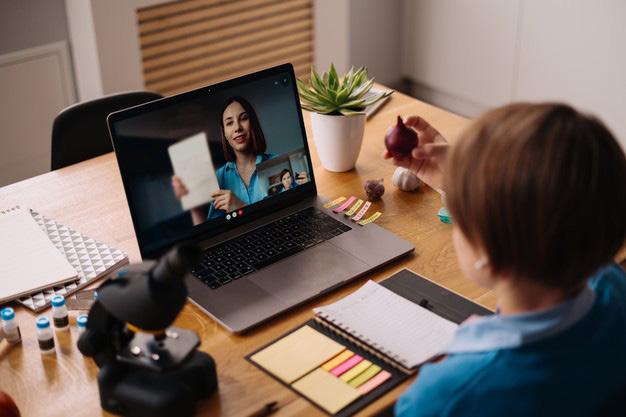
6 minute read
Compensatory Education & Recovery Services: COVID-19 Considerations for Students on IEPs & 504 Plans
Compensatory Education & Recovery Services:
COVID-19 CONSIDERATIONS FOR STUDENTS ON IEPs & 504 Plans
by LAuREN A. SAbO
On March 12, 2020, Governor DeWine ordered all of Ohio’s public, community and private K-12 school buildings to be closed due to the ongoing coronavirus health crisis. If a school district closed to prevent the spread of COVID-19 and did not provide educational services to the general student population (whether via in person or virtual instruction), then the district was not required to provide services to students with disabilities during that time period.

However, once schools resumed, the district, to the greatest extent possible, was required to make every effort to provide special education and related services to the child in accordance with their Individualized Education Program (IEP) or 504 Plan.i Schools had a lot of flexibility in how to provide these services to students throughout the pandemic, but ultimately, the requirement for schools to provide Free Appropriate Public Education (FAPE) to students receiving special education services was not waived due to the COVID-19 pandemic.
Compensatory Services
Although compensatory services (also called compensatory education or comp ed) are not addressed in the Individuals with Disabilities Education Act (IDEA) or other federal or state regulations, most state education agencies have released guidance surrounding compensatory education as well as the potential for recovery services that may be needed as a result of COVID-19 school closures. Compensatory services are educational services above and beyond what is normally due to a student, resulting from a failure of the school to provide those services under a child’s IEP or 504 Plan. The purpose is to place the student in the position they would have been in if the school had provided the appropriate services, or to “compensate”
the student for learning and skills that were lost when special education and related services were not provided. Under compensatory services, there is no obligation to provide a minute-by-minute or day-for-day compensation for the time missed, although sometimes it is determined that missed services will be calculated by minutes or days and made up as an equitable remedy. However, in some cases, comp ed could be more than what was lost depending on the child’s circumstances as each situation should be determined on a case-by-case basis.
Recent case law has established that “whereas ordinary IEPs need only provide ‘some benefit’, compensatory awards must do more – they must compensate.”ii However, since school building closures were due to a public health emergency, the typical framework used to determine whether or not compensatory services should be provided may not be appropriate under the circumstances, as most school districts did not outright fail to provide FAPE. Rather, they were unable to provide a Free Appropriate Public Education because of state-mandated school closures.
Notably, if the child with a disability was refused services by a school district or did not receive services or instruction during building closures while students in general education were receiving services, then actual compensatory services may be warranted.
Recovery Services
As school districts begin to return to normal, most are planning on how best to meet and transition the needs of students who receive special education and related services during such an unprecedented time.

Many states have announced recovery services or COVID-19 specific compensatory services, which refer to services determined by the IEP or 504 team needed to remedy a student’s skill regression, behavior loss, and/or lack of progress that resulted from a school district’s inability (not intentional failure) to provide FAPE during an unavoidable closure. Recovery services should be considered only after a period of recoupment is assessed. This occurs when a student receives the services set out in their IEP or 504 Plan for a set period of time once schools reopen, thus allowing them time to “recoup” the lost skills or behavior or to make progress to the level(s) determined appropriate by the IEP or 504 team prior to the extended school closure. If the student continues to show gaps in their learning and skills after this period, they may need additional supports and services to “recover” from the interruptions in the delivery of their services during COVID-19. Recovery services are also not defined in the IDEA but have been increasingly used to describe a school district’s response to the gaps in student learning caused by COVID-19 and the school closures beginning in the 2019-2020 school year. As with compensatory services, recovery services should be based on a child’s individual needs, assessments and progress documentation.
ESY Services
Compensatory and recovery services are not the same as Extended School Year services (ESY). ESY services provide individual instruction and services to a child in order to prevent the severe or considerable loss of skills or learning during time outside of the regular school year. ESY services are not dependent on the

appropriateness of services provided in an IEP or 504 Plan, and a child may be entitled to ESY services as well as compensatory or recovery services. These services may look similar in practice and delivery but should be made on an individualized determination based on what is necessary for the child to make meaningful progress in the least restrictive environment.

A child is not automatically entitled to compensatory, recovery or ESY services by virtue of state-wide school closures alone. Parents and guardians of children with disabilities should know the difference between these services to which their child may be entitled. School districts should never pressure families to waive special education services, including compensatory, recovery or ESY services. Families and schools should work together to determine what educational services will be provided based on the individual student’s needs. Ultimately, due to the nature of the shutdown resulting from a global pandemic, education agencies and courts will likely show deference to the emergency determinations made by school officials during this unprecedented time. Parents should regularly communicate with their child’s school and document these conversations about the potential for additional services related to COVID-19.

Key Points/Recap
• If a school district intentionally fails to provide FAPE to a child with a disability, they may be entitled to compensatory services. • If a child with a disability tends to regress after long break periods, they may be entitled to extended school year services. • If a school district was unable to provide special education and related services to a child with a disability during a school closure, and the child has not made progress in their learning after a period of recoupment, they may be entitled to recovery services. • A child with a disability is not automatically entitled to these services due to COVID-19 school closures; What happens when we work together? Central Ohio is healthier.

To assist your clients in fulfilling their charitable interest in health and wellness through the CMA Foundation, please contact: Weldon E. Milbourne 614.240.7420 wmilbourne@cmafohio.org
rather, the determination of services should be made on an individualized basis by the IEP or 504 team. • Compensatory, recovery and ESY services can be provided over an extended period of time but should be provided in the least restrictive environment for students receiving special education.
i 34 CFR §§ 300.101 and 300.201 (IDEA), and 34 CFR § 104.33 (Section 504)ii Reid ex Rel. Reid v. District of Columbia, 401 F.3d 516 (D.C. Cir. 2005)
Lauren A. Sabo, Esq.
Albeit Weiker, LLP lauren@awlawohio.com










